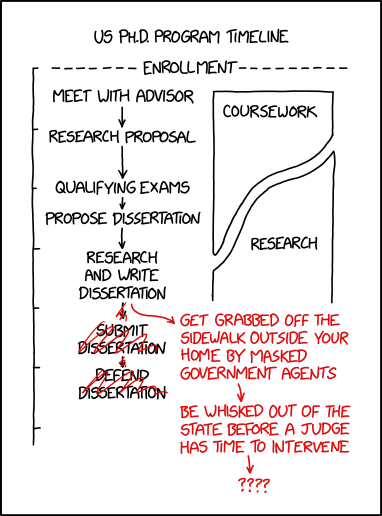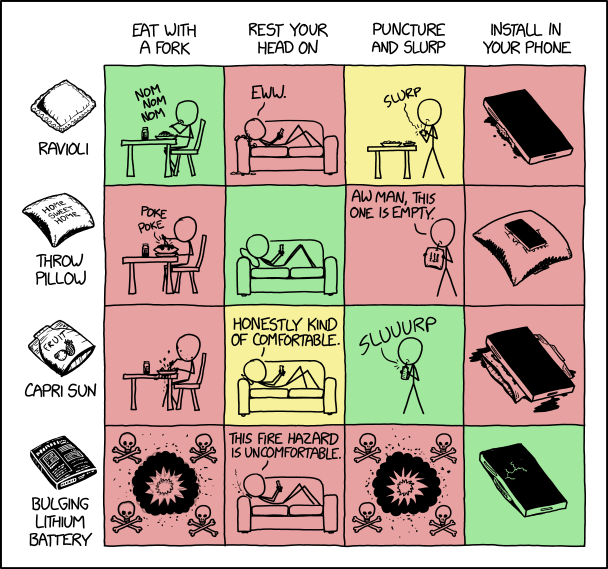
 How are these murderous sociopaths not in jail?
How are these murderous sociopaths not in jail?"If it is your job to advance technology, safety cannot be your No. 1 concern," Levandowski told me. "If it is, you'll never do anything. It's always safer to leave the car in the driveway. You'll never learn from a real mistake."Levandowski had modified the cars' software so that he could take them on otherwise forbidden routes. A Google executive recalls witnessing Taylor and Levandowski shouting at each other. Levandowski told Taylor that the only way to show him why his approach was necessary was to take a ride together. The men, both still furious, jumped into a self-driving Prius and headed off.
The car went onto a freeway, where it travelled past an on-ramp. According to people with knowledge of events that day, the Prius accidentally boxed in another vehicle, a Camry. A human driver could easily have handled the situation by slowing down and letting the Camry merge into traffic, but Google's software wasn't prepared for this scenario. The cars continued speeding down the freeway side by side. The Camry's driver jerked his car onto the right shoulder. Then, apparently trying to avoid a guardrail, he veered to the left; the Camry pinwheeled across the freeway and into the median. Levandowski, who was acting as the safety driver, swerved hard to avoid colliding with the Camry, causing Taylor to injure his spine so severely that he eventually required multiple surgeries.
The Prius regained control and turned a corner on the freeway, leaving the Camry behind. Levandowski and Taylor didn't know how badly damaged the Camry was. They didn't go back to check on the other driver or to see if anyone else had been hurt. Neither they nor other Google executives made inquiries with the authorities. The police were not informed that a self-driving algorithm had contributed to the accident.
Levandowski, rather than being cowed by the incident, later defended it as an invaluable source of data, an opportunity to learn how to avoid similar mistakes. He sent colleagues an e-mail with video of the near-collision. Its subject line was "Prius vs. Camry." (Google refused to show me a copy of the video or to divulge the exact date and location of the incident.) He remained in his leadership role and continued taking cars on non-official routes.
According to former Google executives, in Project Chauffeur's early years there were more than a dozen accidents, at least three of which were serious. One of Google's first test cars, nicknamed kitt, was rear-ended by a pickup truck after it braked suddenly, because it couldn't distinguish between a yellow and a red traffic light. Two of the Google employees who were in the car later sought medical treatment. A former Google executive told me that the driver of the pickup, whose family was in the truck, was unlicensed, and asked the company not to contact insurers. kitt's rear was crushed badly enough that it was permanently taken off the road.
In response to questions about these incidents, Google's self-driving unit disputed that its cars are unsafe. "Safety is our highest priority as we test and develop our technology," a spokesperson wrote to me. [...]
As for the Camry incident, the spokesperson [said that] because Google's self-driving car did not directly hit the Camry, Google did not cause the accident.
These words actually came out of this creature's mouth, on purpose, when it knew that humans could hear it speaking:
"The only thing that matters is the future," [Levandowski] told me after the civil trial was settled. "I don't even know why we study history. It's entertaining, I guess -- the dinosaurs and the Neanderthals and the Industrial Revolution, and stuff like that. But what already happened doesn't really matter. You don't need to know that history to build on what they made. In technology, all that matters is tomorrow."
A nice short animated video on the power of empathy and how it differs from sympathy.
Rarely can a response make something better. What makes something better is connection.
Related: Empathy is a Choice.
Tags: videoSome kinds of people seem generally less likely to feel empathy for others -- for instance, powerful people. An experiment conducted by one of us, Michael Inzlicht, along with the researchers Jeremy Hogeveen and Sukhvinder Obhi, found that even people temporarily assigned to high-power roles showed brain activity consistent with lower empathy.
But such experimental manipulations surely cannot change a person's underlying empathic capacity; something else must be to blame. And other research suggests that the blame lies with a simple change in motivation: People with a higher sense of power exhibit less empathy because they have less incentive to interact with others.
I just had an unexpectedly harrowing experience on the internet.
While I like to think that I’m immune to clickbait, occationally I leave the high road and tumble gracelessly down into the muddy ditch where I roll around with all the giddy enthusiasm of a dog who’s just found a particularly feculent turd.
(Pat pauses for a moment, looking up at the sentence he just wrote, and thinks that sometimes, just maybe, he should dial the vividity of his phraseologer down from 11.)
Anyway, I stumbled onto the following webpage the other day. I can’t even remember how.
Vote for the best Geek Celebrity Ever.
So I think, Okay, sure. I’ll vote in your little poll. I am wise in the ways of the geek. I have opinions.
The thing is set up as a series of X vs. Y pairings, and you have to vote for one or the other.
The first couple were easy. Obiously Felicia Day beats Peter Jackson. Obviously Johnathan Coulton beats out JJ Abrams. Tina Fey trumps Shatner.
You also have the option to skip voting on a particular pairing. This was first useful when I was given two people I’d never heard of before, a cosplayer and a voice actor. Rather than vote blind, you’re able to just shrug and get a completely new random pairing.
But I didn’t realize how essential the skip button was until this happened:
I saw this, and a gear slipped in my brain. How could I possibly pick? The author of the second comic I’d ever read as an adult (Watchmen). The guy who Promethia. Top Ten. Tom Strong. V for Vendetta. Someone whose work has honesty changed my perception of comic art if not storytelling as a whole. Plus, y’know, wizard.
On the other hand we have Wil: creator of Tabletop, which is a force for good in the world. Co-founder of Wootstock, a source of persistant joy in my life. The actor that played Westley Crusher, a character that made my life suck a little less as a kid. Someone who regularly speaks truth to power, and a damn fine author in his own right….
It was a flabergasting choice. It’s not like compairing apples and oranges. It’s like compairing sex and videogames. I had to skip that matchup.
Then this happened:
 When I saw this, my soul made the sound of ultimate suffering. I think I actually shouted at the screen. “Don’t make me choose!”
When I saw this, my soul made the sound of ultimate suffering. I think I actually shouted at the screen. “Don’t make me choose!”
As the poll continues, it winnows out the people you don’t know pretty quickly. Then it gets rid of the people you don’t care for. With a little more difficulty you leave behind geek celebs you are merely fond of.
Then it starts to become excruciating. You are forced to make choices no sane person would ever willingly make.
Still the grindstone turns until you are finally confronted with something like this.
Don’t. Just don’t.
So. If you want to plumb the depths of your own personal geeky faith, go ahead and check it out. I think the voting ends today.
Raphael Orlove, writing for Jalopnik:
The last and best feature of the car is Honda’s GPS solution: it’s your phone. You can order the car with navigation for something around $1500, or you can download the HondaLink app from Honda for $59.99 and get something better. With the app, the car will display your phone’s GPS on its seven-inch display. That means as you upgrade your phone, you’ll be upgrading your GPS, too. I can’t think of a better system.
Way of the future.



